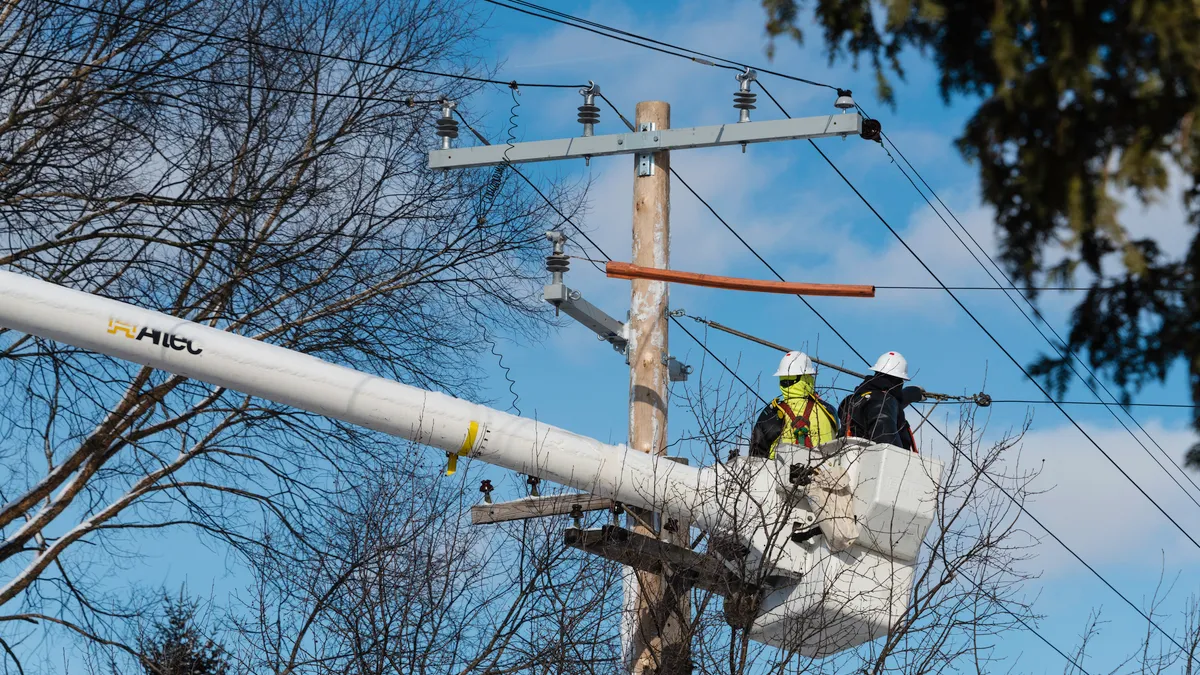Most of the media spotlight on FERC lately has focused on generation subsidies proposed by the Department of Energy. But as the commission considers the controversial plan to support coal and nuclear plants, gas pipeline politics continue to simmer alongside.
At the commission’s open meeting this month, Acting Chairman Neil Chatterjee announced FERC had completed working through a backlog of project proposals the agency was unable to act on while it was without a quorum from February to August of this year.
Since then, FERC has issued more than 340 orders, including approvals for more than 8 Bcf/d of pipelines.
"These critical pipelines included some applicants, like the Atlantic Coast and Mountain Valley pipelines, that had been waiting up to 18 months to receive a certificate,” Chatterjee said.
Those decisions have angered many environmentalists, who say FERC does not properly consider ecological impacts and the demand for new pipeline capacity in its approval process. Pipeline protesters commonly interrupt FERC’s open meetings to register their opposition, and this month they were joined by a celebrity — Academy Award-nominated actor James Cromwell.
The 77-year-old Cromwell, known for his parts in “Babe” and “Star Trek: First Contact,” rose to interrupt Chatterjee’s closing statement along with two other protesters from Protect Orange County, a group working against pipeline construction in upstate New York. The demonstrators chastised commissioners for destroying the environment and chanted “FERC doesn’t work” as they were escorted from the room.
After the meeting, Cromwell told reporters he came to the meeting with Pramilla Malick, chair of the activist organization, to protest the approval of the Valley Lateral pipeline, a 7.8 mile extension of the Millennium Pipeline through Orange County to serve a 680 MW gas plant.
"We engaged the legal process, only to realize that FERC plays these really cynical games.”

Pramilla Malick
Chair, Protect Orange County
“We came here six years ago and our community engaged the process faithfully,” Malick said after the meeting. “We submitted our comments. We engaged the legal process, only to realize that FERC plays these really cynical games.”
At the meeting, FERC issued an order denying a rehearing on Valley Lateral, allowing construction to begin once court challenges are resolved. The approval was particularly controversial — it argued that New York had waived its authority to issue water quality permits for the pipeline because it did not act within the one-year timeframe required by the Clean Water Act.
“They've really gone too far by trying to usurp New York State's authority delegated by Congress,” Malik said. “It’s an authority not only to protect our water, but it’s a responsibility of New York State to protect our water.”
Construction of the Valley Lateral pipeline is currently on hold as the 2nd U.S. Circuit Court of Appeals considers a challenge to the FERC ruling brought by New York Attorney General Eric Schneiderman (D). The state argues that it was within its one-year timeframe when it denied a water quality permit for the pipeline in August. The court will hear oral arguments in the case on Dec. 5.
Valley Lateral is just one of a number of high-profile cases to question FERC’s approach to pipeline approvals in recent months. In October, FERC approved the Atlantic Coast and Mountain Valley pipelines in separate 2-1 votes, with Commissioner Cheryl LaFleur (D) dissenting in both.
LaFleur argued that FERC should expand its evaluation of pipeline needs to include "evidence of the specific end use of the delivered gas" from a proposed pipeline, rather than relying on precedent agreements from utilities pledging that proposed pipelines will be fully prescribed. Chatterjee and Commissioner Robert Powelson disagreed, writing that FERC is “not engaged in regional planning."
LaFleur is not alone in seeking reforms to the pipeline approval process. In August, the D.C. Circuit Court rejected FERC’s approval of the Southeast Market Pipelines Project, writing the commission should have “given a quantitative estimate of the downstream greenhouse emissions that will result from burning the natural gas that the pipelines will transport,” or at least provided an explanation of why it cannot do so.
As with LaFleur’s dissent, Chatterjee brushed off the D.C. Circuit’s ruling, writing in the Atlantic Coast and Mountain Valley approvals that the climate impacts from the two pending pipelines "cannot be determined." Later, he told reporters that the D.C. Circuit ruling would not change FERC's consideration process.
Chatterjee’s argument is that the Natural Gas Act, a 1938 law that governs FERC’s pipeline approval process, does not allow the commission to take into account broader environmental impacts. The law requires FERC to approve projects that would serve “the present or future public convenience and necessity." Throughout the commission’s history, the law has been interpreted in a way that encourages development. FERC has only rejected two pipelines in the past 30 years, according to a report from the Center for Public Integrity published in July.
“We have to follow the statutes that govern us,” Chatterjee told Utility Dive during an interview at his Washington office. “If an application is lawfully submitted and dutifully executed, we will evaluate it — and if the parameters are met under our statutes, we have to approve it.”
Chatterjee’s explanation is familiar — one used by FERC regulators for years to respond to pipeline protesters — but it is unlikely to placate anti-pipeline activists. In response to Chatterjee’s comments, Malik argued that if FERC is not an environmental regulator, it should stop getting involved in state environmental decisions, like the Valley Lateral case in New York.
“They should just stop trying and stop interfering with agencies that do have that [environmental] jurisdiction and that do have that expertise,” Malik said.
“I understand and empathize with with [pipeline protesters'] frustrations. But the reality is to change the process, there have to be statutory changes.”

Neil Chatterjee
Acting Chairman, FERC
While Chatterjee said he respects the “passion” of the pipeline protesters, he directed activists pushing for changes to FERC approvals to “look down the street” at Congress.
“I understand and empathize with with their frustrations,” he said. “But the reality is to change the process, there have to be statutory changes.”
To many environmentalists, that reasoning is little more than an excuse not to take on the difficult work of regulating the environmental impacts of pipelines. Since amendments to the Gas Act, particularly to toughen up pipeline approvals, are highly unlikely from this Republican-controlled Congress, pipeline protests seem set to continue.
“It doesn’t matter where it is; it’s the same process,” Cromwell said after being escorted from the meeting. “They don’t listen."
An earlier version of this story, drawing upon information from FERC, said the agency had approved 8,000 Bcf/d of pipeline capacity in recent months. The correct amount is 8 Bcf/d. The story has been updated.





















